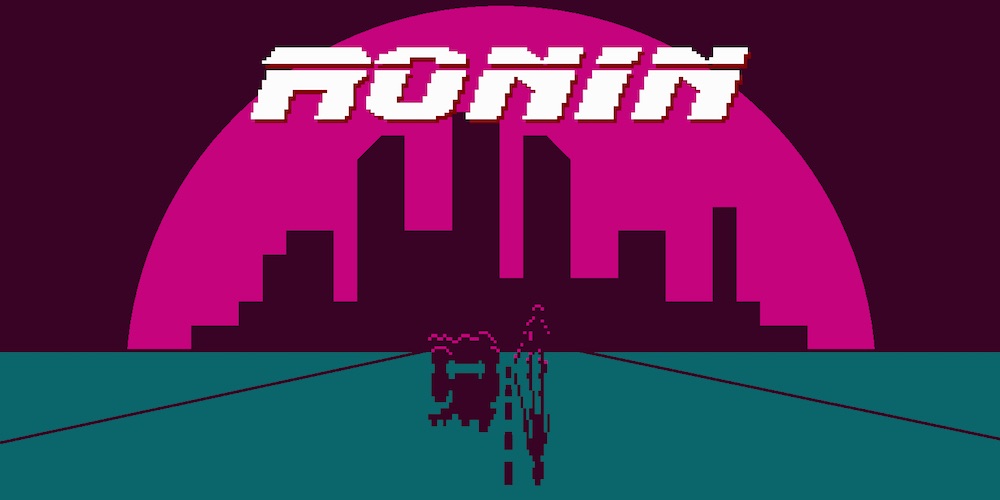
If you asked what I thought of Ronin a week ago, I’d say that DeNiro’s performance was on point, but the film didn’t have one. Now, my opinion is that while my jumping was on point, the game didn’t have one. Not having a point isn’t a bad thing though, especially when you’re talking about a game that lets you jump across skyscraper windows to throw your sword into samurai soldiers. It’s a nice little romp, and considering the price tag, that’s all it needs to offer.
Ronin is a mix between N, Toribash and Gunpoint, but it’s not a whole lot of any of them. It’s a 2D quasi-stealth platformer with turn-based combat and a cyberpunk aesthetic, which is half a line for those of you playing indie-game bingo. It’s a strange mix of mechanics that combines running in and painting the walls red with careful planning about how you’ll stab your brush into someone’s neck. It’s certainly original, but it often feels at odds with itself.
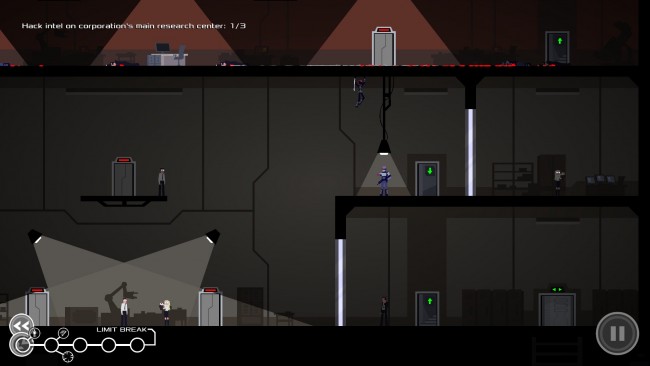
Ronin is not a stealth game, but the mechanics aren’t fluid enough to make this a balls to the wall action game either. If there is one word I’d use to describe the design of Ronin, it would be “stunting”. You can do some crazy stuff, like dodge bullets by millimetres before throwing your sword into the gunner, but the constant stopping and starting doesn’t make for smooth combat. On top of that, everything from interacting with stairs and elevators requires using the mouse instead of the WASD keys. This all adds up to a very jaunty experience, but these mechanics don’t exist solely to frustrate.
While annoying outside of combat, the stop-start mechanics make for a game that plays like a series of puzzles. Combat encounters can throw ludicrous numbers of enemies at you, so you need to be careful about how you manage your position as well as how to safely dispatch them. Towards the later levels, the intricacy of your movements becomes very important, and a surprising deal of thought is needed to stay alive. Once you start including your various abilities, figuring out your next move becomes tricky, but it still boils down to not dying.
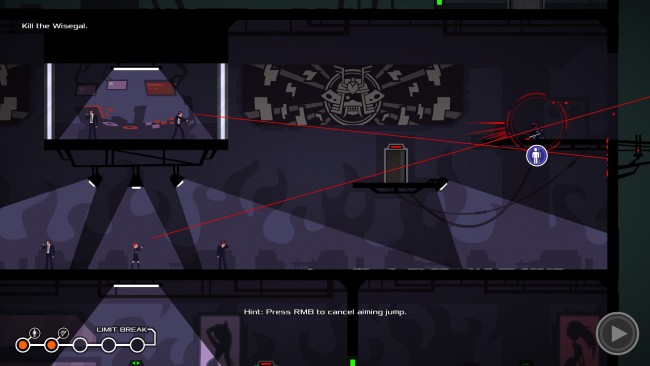
Despite the satisfying puzzle-like nature of the combat, it all comes down to making moves that don’t get you killed. If you end up in the line of fire, you die, so the obvious thing to do is jump somewhere that keeps you alive that turn. There is one unit type that maintains fire over two turns, but this means you only need to look ahead a couple turns to not get perforated. What’s worse is that stealth is like an afterthought; it’s in there, but that’s about it. They’re pretty shallow mechanics, but some outstanding level design compensates it.
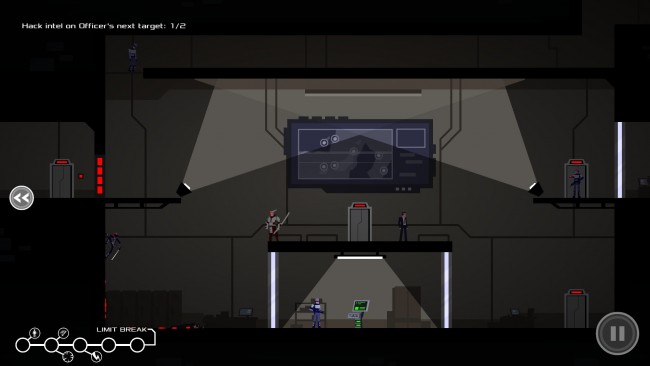
It was about when I had to jump from one skyscraper window to the other that I had decided that the level design was effin’ sweet. There’s a huge variety of levels, from claustrophobic hallways to vast open areas, and each one offers its own environmental challenge in its combat. I managed to beat the game in less than 4 hours, but considering the quality of the levels on offer, I’m not fussed over getting any more. In fact, that’s how I feel about the story too.
Ronin’s plot is more of a motivation than it is a story, which is is totally cool by me. The whole plot is that your avatar’s father was killed, and now you need to kill five dudes for maximum revenge. The game does an awful job of explaining what’s going on, but the environmental narrative is off the charts. If you wanted me to, I could tell you who you are, who your dad worked for and even the name of each company involved. It doesn’t go beyond setting up the motivation to facilitate gameplay, but that’s fine for a game that provides story through looking good.
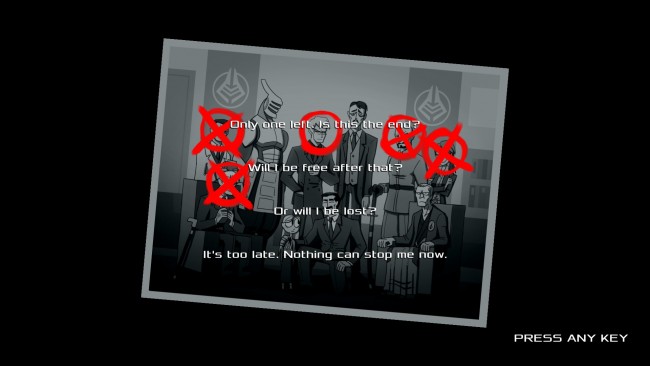
If you’re looking at the screenshots and thinking that the game looks like a nice flash game, I’m right there with you. It’s certainly not a bad looking game (God knows I love me some cyberpunk aesthetic); it’s just not an exceptional looking one either. The music is a lot better though, and I’m stashing the soundtrack into my music library as we speak. Still, for what it’s worth, the visuals do a good job of setting the tone for a quick romp through death alley.
 Every combat is a puzzle
Every combat is a puzzle
 Phenomenal level design
Phenomenal level design
 Doesn’t overstay it’s welcome
Doesn’t overstay it’s welcome
 Robot samurai
Robot samurai
 Stop-start mechanics disrupt flow
Stop-start mechanics disrupt flow
 Combat can feel too simple
Combat can feel too simple
 There’s not more of it!
There’s not more of it!
Ronin is a delightful little game that’s well worth your time if you want something a little different. If you’re looking for something a bit more deep or lengthy, you might be left disappointed, but for $10, I don’t know how much you’re expecting to get. It’s got robot samurai, fantastic level design and some satisfying combat that makes it more than just a Gunpoint rip-off. There’s no DeNiro, but who needs him when this game’s got so much going for it?
DISCLAIMER: this game was supplied to us by the publisher, and reviewed on PC across 4 hours of gameplay.











